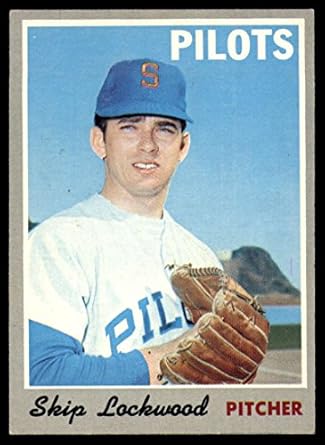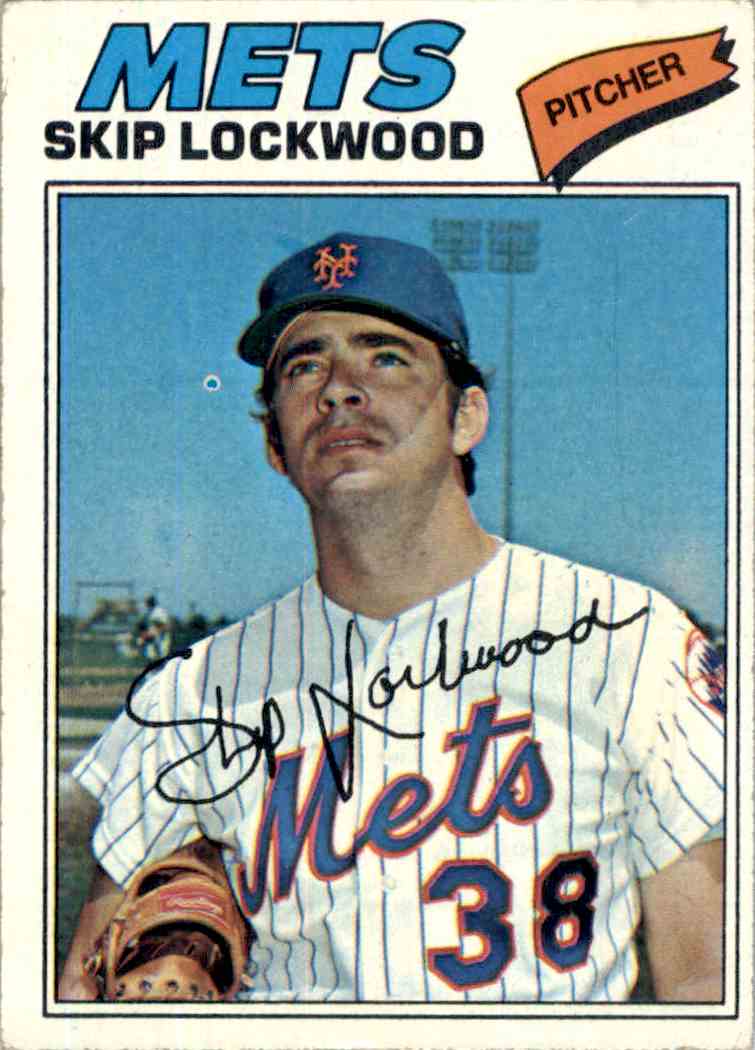Sometimes you just pitch for rotten teams and your career
stats take a hit as a result. The New
York Mets had picked up a journeyman reliever from the Oakland A’s in a cash
deal. Usually players sold (Babe Ruth
being the exception) are not the stars of the game, but a team simply needing a
roster spot or an infusion of cash.
Skip Lockwood had started out as an infielder when he signed
with the then Kansas City Athletics in 1964.
The scout who brought the contract offered him $35,000. Lockwood liked that he was going to have a
chance to play in the majors but felt he was being greatly underappreciated and
said he had a single change to make to the contract, adding a handwritten
number 1 in front of the amount, now having it read $135,00. The scout got Charles Finley on the phone and
Lockwood simply told him he was worth it and would help win games for the
franchise. Finley approved, but much to
everyone’s chagrin, his initial foray into professional ball was not good. He showed some promise of hitting for power
and it earned him a trip to the majors just a year later but in 1965 he batted
a paltry .121 to go along with striking out in 33% of his at-bats. Since he had the classic, “trouble with the
curve” and did nothing to distinguish himself over the next couple of years in
the minors. The Houston Astros selected
him in the Rule V draft, but they ultimately returned him to the now Oakland
A’s and they decided to see if he could parlay his strong throwing arm into a
pitching career.
This move proved to be a better route to a long-term
baseball career. During his first season
as a pitcher in 1968 he appeared in both A and AA ball, going a combined 6-3
with a 3.60 ERA working both as a starter and as a reliever. The expansion Seattle Pilots thought enough
of his potential to make him the 46th overall selection in the draft
and he followed them to Milwaukee where he served primarily as a starting
pitcher between parts of the 1969 through 1973 seasons. They were a bad team and his record reflected
it, going a mere 28-55, but he pitched to a fairly respectable 3.75 ERA.
In 1974 he was traded to the California Angels as part of a
9-player deal and cash. The Angels
decided to convert Lockwood to the bullpen and his single season in Anaheim
resulted in 37 appearances in relief, but the results were mediocre. He finished with a 4.32 ERA and was then was
traded straight up to the NY Yankees for catcher Bill Sudakis. After failing to make the club out of Spring
Training, he was released in April and for the third time signed on the with
the A’s who then sold him to the Mets.
At age 28 something just clicked and his first partial year
for the Mets in 1975 he went a mere 1-3 over 24 games but pitched to a
remarkable 1.49 ERA. In 1976 he
continued his bullpen dominance, going 10-7 over 56 games which included 19
saves and a 2.67 ERA. In 1977 he
established a then club-record 63 games and saved 20 games. In 1978 he was down to 15 saves. He finished up his Mets career in 1979 with 9
saves and another 1.49 ERA. Overall for
the Mets he didn’t do too well when it came to wins and losses at a combined
24-36, but his career Mets ERA was just 2.80 and he saved 65 games.




Skip Lockwood? Wish we had the good Lockwood in the Mets’ 2020 bullpen.
ReplyDelete